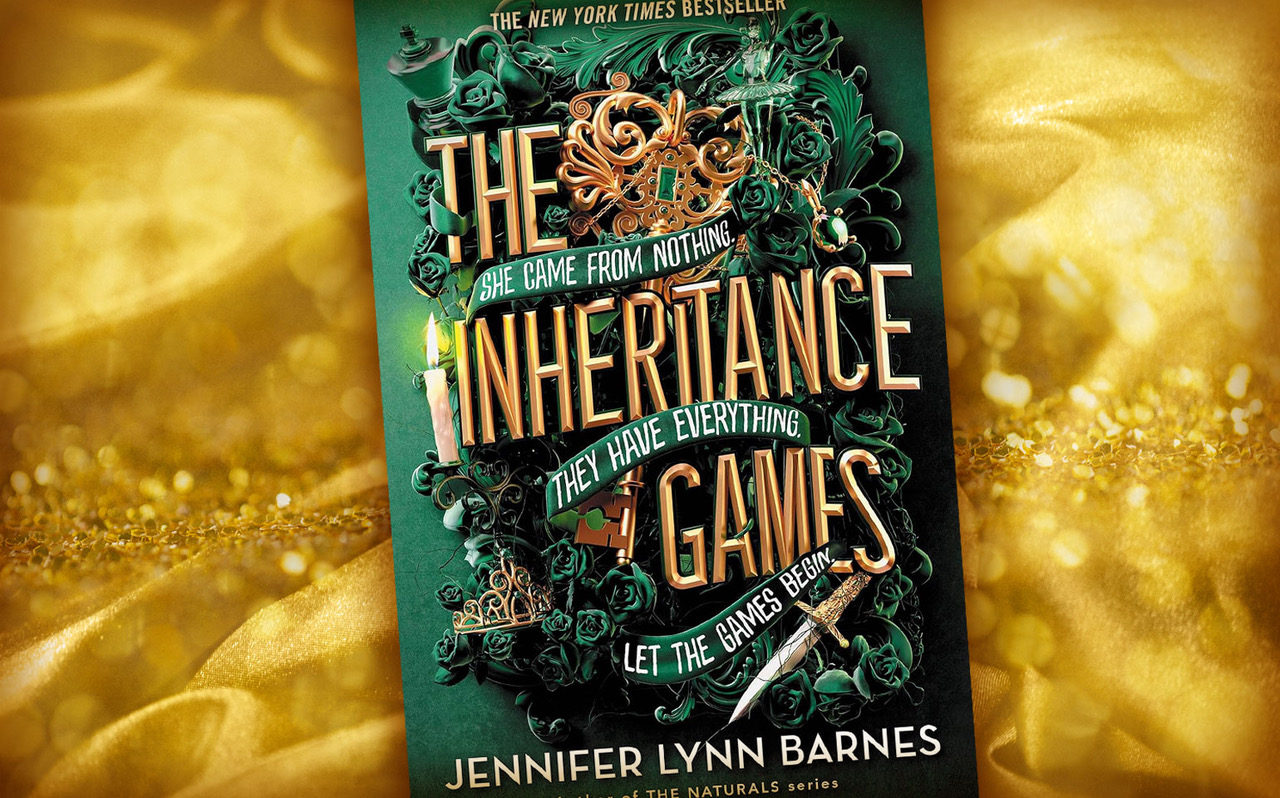
From Riddles to Riches: A Review of The Inheritance Games
The Inheritance Games by Jennifer Lynn Barnes is the first instalment of The Inheritance Games series. Avery Grambs, a 17-year-old, goes from living with her half-sister and sometimes living in her car to inheriting 46.2 billion dollars from a stranger named Tobias Hawthorne. Avery and the disinherited Hawthorne family are curious to know why. The intrigue deepens when Avery learns she must live in the sprawling Hawthorne mansion with the four Hawthorne grandsons for a year to claim this immense wealth. Tobias Hawthorne, renowned for his penchant for puzzles and riddles, leaves a trail of cryptic clues for Avery and his four grandsons to figure out the mystery of Avery’s inheritance.
The beginning of the book is truly captivating. Readers are introduced to Avery, who is strong, smart, and independent but also vulnerable.
Her life changes in a moment, and there is a real tension between Avery and the disinherited Hawthorne family, setting the stage for all kinds of drama.
The four Hawthorne grandsons are enigmatic figures, each with their own motivations and secrets. As Avery navigates her new life within the Hawthorne mansion, she finds herself drawn into the complexities of their relationships and the mysteries within their family. Amid this, a love triangle forms between Avery and two of the grandsons, Grayson and Jameson, contributing to the evolving intrigue, tension, and twists that drive the narrative forward.
Much of the novel unfolds within the sprawling Hawthorne mansion, a cross between Buckingham Palace’s grandeur and Hogwarts’s enchantment. The mansion boasts grand staircases, priceless artwork, antique furniture, and extensive libraries brimming with rare volumes. Secret passages—crafted by Tobias Hawthorne—wind through the walls, adding to the mansion’s mysterious aura. Puzzles and riddles are embedded throughout the mansion, contributing to the suspense and serving as a captivating backdrop for the characters’ quest.
The heart of the novel involves Avery’s pursuit to unveil the secrets of her inheritance. The quest commences with her discovery of a second will, featuring the full names of the four Hawthorne grandsons—each name a clue leading to more clues.
I anticipated a novel rich in solvable clues, where readers could piece together the mystery alongside the characters, but many of the clues depend on Avery finding things within the labyrinthine mansion.
The reader can’t help Avery find concealed compartments or small carvings. Other clues rely on Avery’s personal knowledge and are unknown to the reader, so the reader has no way of piecing together the final answer. A great mystery novel places all the clues within the reader’s grasp, allowing the reader a chance to unravel the mystery. However, in The Inheritance Games, there is often insufficient information provided to the readers, so these revelations feel unearned and underwhelming.
As the sole heiress, Avery is constantly preoccupied with her safety. Despite an attempt on her life, Avery remains determined to unravel the mystery of inheritance. If I were given a substantial amount of money and told to live with the disinherited family for a year, I would hide in a corner in the vast mansion, stay out of everyone’s way, and definitely not kiss any of the disinherited heirs.
The author could have further explored the theme of social class. The narrative revolves around Avery, a homeless orphan who unexpectedly inherits immense wealth and is thrown into a world of people who have only ever known spectacular wealth. However, the disparities between Avery and the affluent Hawthorne family are only superficial, and once Avery has a makeover, she becomes indistinguishable from the Hawthornes. The author missed an opportunity for a deeper exploration of social class dynamics.
The conclusion was somewhat anticlimactic. Tobias Hawthorne’s intricate web of puzzles and riddles had been crafted over 20 years, and all this considerable effort was invested in conveying a lesson on the importance of family to his grandsons.
Tobias Hawthorne was obviously a brilliant man who should have been able to figure out another way to provide this life lesson to his grandsons while he was still alive.
Notwithstanding these criticisms, I found myself utterly engrossed in the novel. The brief, fast-paced chapters propelled me through the book in a two-day binge-reading session. The narrative was engaging, the characters endearing, and the Hawthorne family’s world captivating. I wholeheartedly recommend The Inheritance Games.



